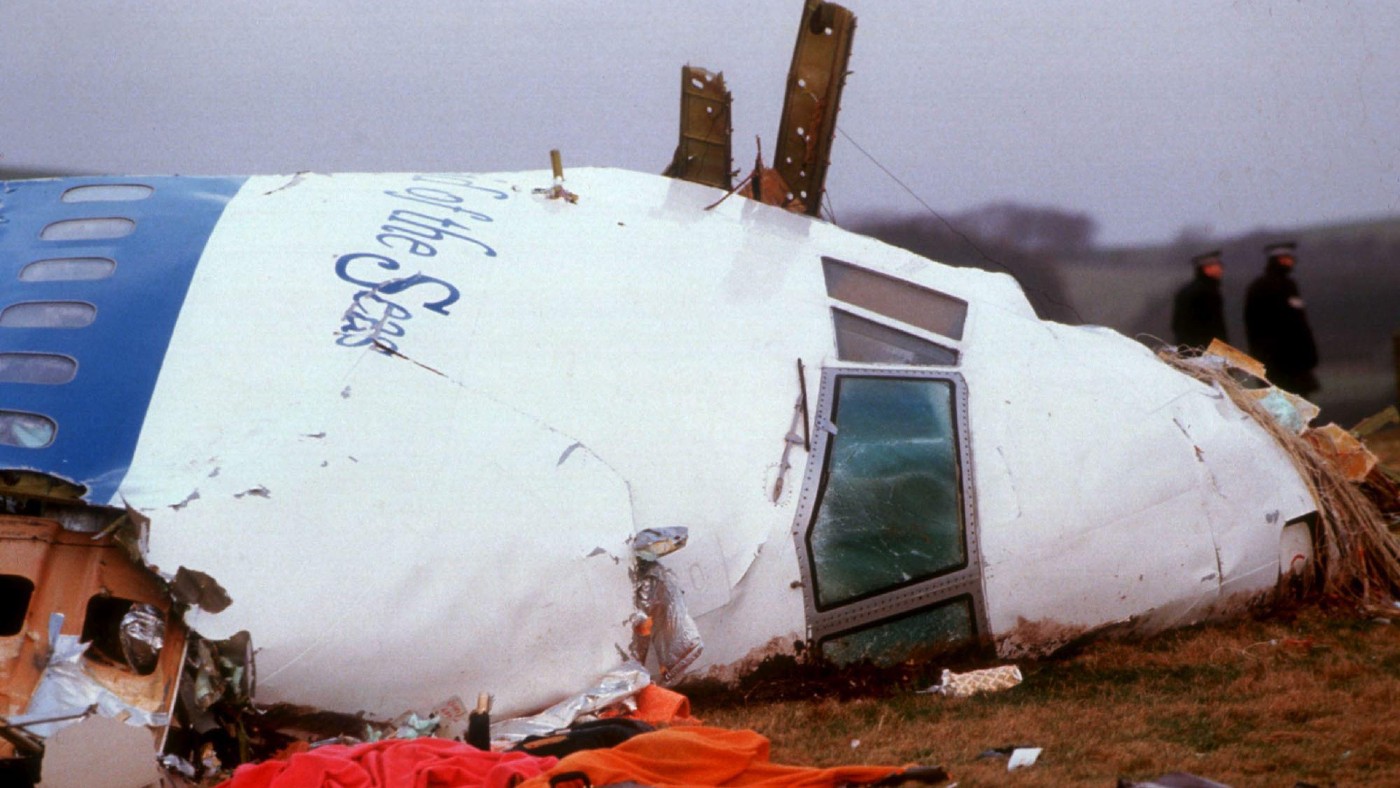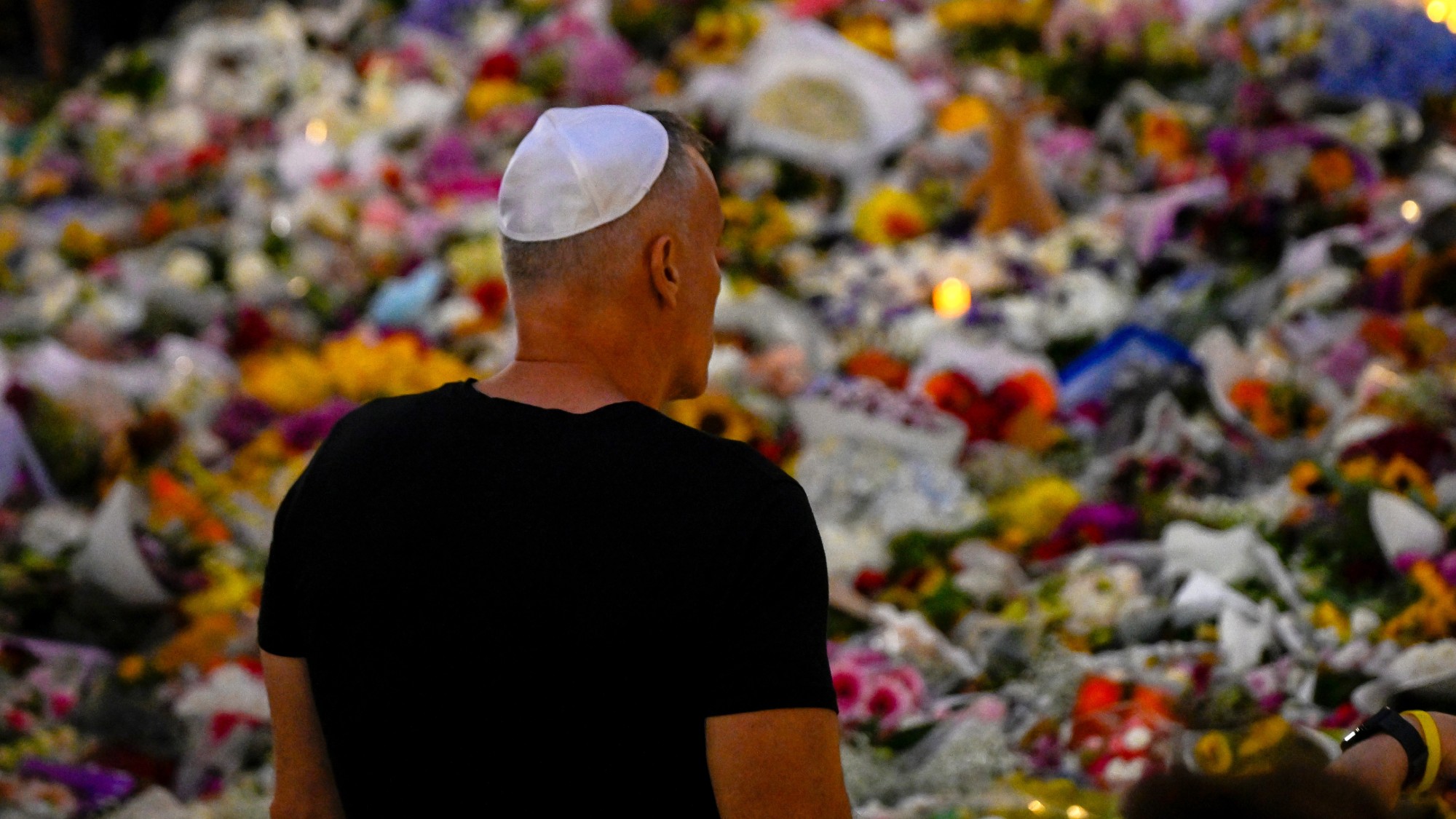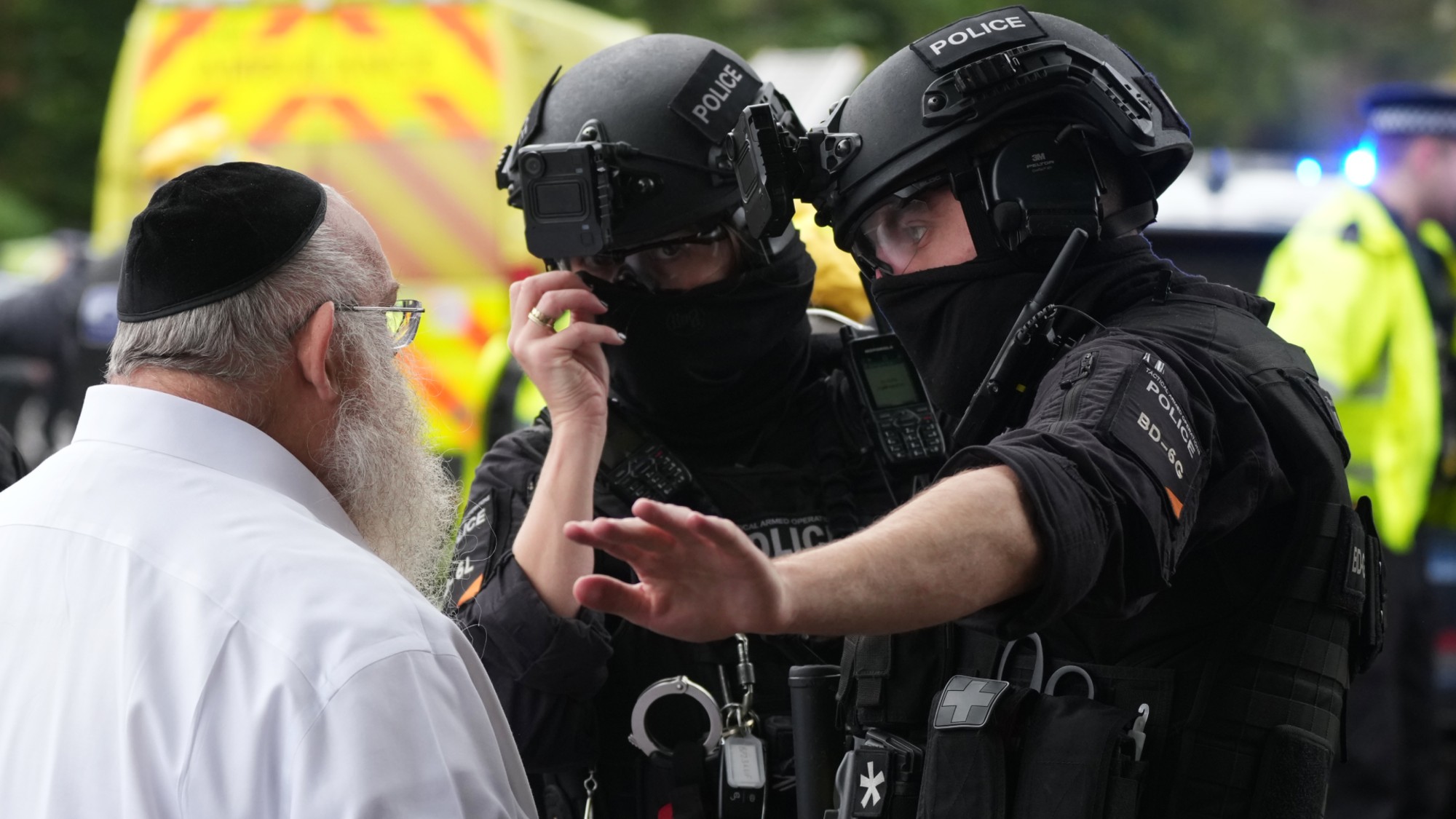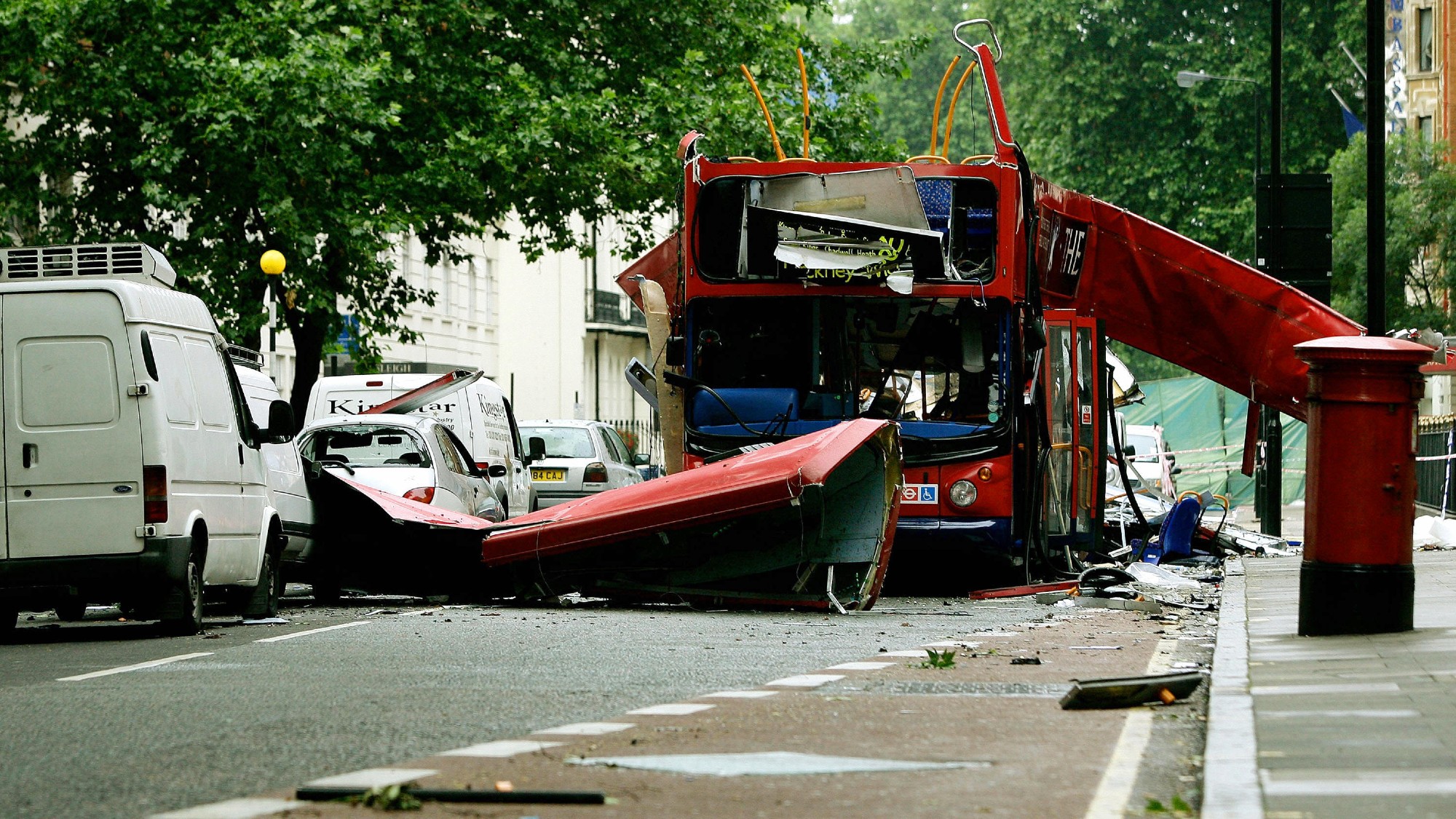The Lockerbie disaster and the ‘third man’ Mas’ud
Libyan suspect extradited to US to face trial over 1988 bombing of Pan Am Flight 103

A free daily email with the biggest news stories of the day – and the best features from TheWeek.com
You are now subscribed
Your newsletter sign-up was successful
Libyan intelligence operative Abu Agila Mohammad Mas’ud Kheir Al-Marimi has been extradited to the US to be prosecuted for allegedly building the explosive device used in the UK’s deadliest terror attack.
Mas’ud is accused of being the third man who masterminded the bombing of Pan Am flight 103 over the Scottish town of Lockerbie on 21 December 1988. The attack resulted in the deaths of all 259 people on the flight from London Heathrow to New York City, and a further 11 people on the ground.
The arrest and extradition of Mas’ud is the culmination of a “decades-long effort” by the US Justice Department, said The New York Times, and comes two years after criminal charges were brought against him.
The Week
Escape your echo chamber. Get the facts behind the news, plus analysis from multiple perspectives.

Sign up for The Week's Free Newsletters
From our morning news briefing to a weekly Good News Newsletter, get the best of The Week delivered directly to your inbox.
From our morning news briefing to a weekly Good News Newsletter, get the best of The Week delivered directly to your inbox.
Why has Mas’ud been arrested now?
Reports last month that Mas’ud had been “kidnapped by a militia group in Libya” triggered “speculation that he was going to be handed over to the American authorities to stand trial”, the BBC reported.
Scottish authorities confirmed on Sunday that Mas’ud was in US custody. The extradition means he will be tried under American, rather than Scottish law.
The first Lockerbie trial took place at a specially convened Scottish court sitting in the Netherlands between 2000-2001. The court convicted Abdelbaset al-Megrahi of murder and sentenced him to life in prison. A second suspect, Al Amin Khalifa Fhimah, was acquitted.
Mas’ud was formally charged in a federal court in Washington D.C. yesterday but did not enter a plea, “citing the need to retain counsel before proceeding in the case”, CNN reported. His arraignment was welcomed by Victoria Cummock, the widow of a Lockerbie passenger, as “a significant first step to address the three-decades-long miscarriage of justice”.
A free daily email with the biggest news stories of the day – and the best features from TheWeek.com
Cummock, who founded the Pan Am 103 Lockerbie Legacy Foundation, told the news channel that “it is the victims’ families’ fervent wish that the US criminal trial proceedings begin immediately since justice delayed is justice denied”.
The criminal charges against Mas’ud were announced in 2020 by then US attorney general William P. Barr. Mas’ud is accused of being “a key figure in the bomb plot”, The Guardian reported, and of having “worked with Megrahi and Fhimah to carry it out”.
Mas’ud allegedly “met with the other two in Malta, where he had been directed to fly by a senior Libyan intelligence official with a prepared suitcase”, said the paper, and then “set the timer” for the bomb.
Investigators also allege that Libyan ruler Colonel Muammar Gaddafi met with Mas’ud and Fhimah three months after the bombing and “thanked them for carrying out a great national duty”.
What happened to Megrahi?
Megrahi, a high-ranking Libyan state airline official, was sentenced in January 2001 to life in prison after being found guilty of orchestrating the bombing. His conviction was based on the theory that Gaddafi personally ordered the terrorist attack in retaliation for the 1986 US bombing of Tripoli and Benghazi in which his daughter was killed.
In 2003, Gaddafi accepted Libya’s responsibility for the bombing and paid compensation to the victims’ families, but denied personally ordering the attack. His son, Saif al-Islam, repeatedly said that the admission was merely a political move to persuade the West to lift crippling sanctions and pave the way for lucrative oil deals.
Gaddafi was overthrown and killed in 2011, after more than 40 years of dictatorial rule.
Megrahi served just eight-and-a-half years of his sentence for the Lockerbie bombing, before being released on compassionate grounds in 2009 after being diagnosed with terminal prostate cancer. He returned to Libya, where he died almost three years later.
Megrahi always protested his innocence. Others have also claimed he was the victim of a miscarriage of justice, including many of the victims’ families, who believe the truth has been withheld.
After losing an appeal against his conviction in 2002, Megrahi launched a second appeal that he later abandoned without explanation. “Why he did this has always been a matter for conjecture,” said BBC Scotland’s home affairs correspondent Reevel Alderson in 2018.
Relatives of the Lockerbie victims were among those who campaigned to clear Megrahi’s name and put pressure on the UK government to identify the “real” killers.
-
 How the FCC’s ‘equal time’ rule works
How the FCC’s ‘equal time’ rule worksIn the Spotlight The law is at the heart of the Colbert-CBS conflict
-
 What is the endgame in the DHS shutdown?
What is the endgame in the DHS shutdown?Today’s Big Question Democrats want to rein in ICE’s immigration crackdown
-
 ‘Poor time management isn’t just an inconvenience’
‘Poor time management isn’t just an inconvenience’Instant Opinion Opinion, comment and editorials of the day
-
 How the ‘British FBI’ will work
How the ‘British FBI’ will workThe Explainer New National Police Service to focus on fighting terrorism, fraud and organised crime, freeing up local forces to tackle everyday offences
-
 How the Bondi massacre unfolded
How the Bondi massacre unfoldedIn Depth Deadly terrorist attack during Hanukkah celebration in Sydney prompts review of Australia’s gun control laws and reckoning over global rise in antisemitism
-
 Who is fuelling the flames of antisemitism in Australia?
Who is fuelling the flames of antisemitism in Australia?Today’s Big Question Deadly Bondi Beach attack the result of ‘permissive environment’ where warning signs were ‘too often left unchecked’
-
 Ten years after Bataclan: how has France changed?
Ten years after Bataclan: how has France changed?Today's Big Question ‘Act of war’ by Islamist terrorists was a ‘shockingly direct challenge’ to Western morality
-
 Arsonist who attacked Shapiro gets 25-50 years
Arsonist who attacked Shapiro gets 25-50 yearsSpeed Read Cody Balmer broke into the Pennsylvania governor’s mansion and tried to burn it down
-
 Manchester synagogue attack: what do we know?
Manchester synagogue attack: what do we know?Today’s Big Question Two dead after car and stabbing attack on holiest day in Jewish year
-
 The Miami Showband massacre, 50 years on
The Miami Showband massacre, 50 years onThe Explainer Unanswered questions remain over Troubles terror attack that killed three members of one of Ireland's most popular music acts
-
 The failed bombings of 21/7
The failed bombings of 21/7The Explainer The unsuccessful attacks 'unnerved' London and led to a tragic mistake